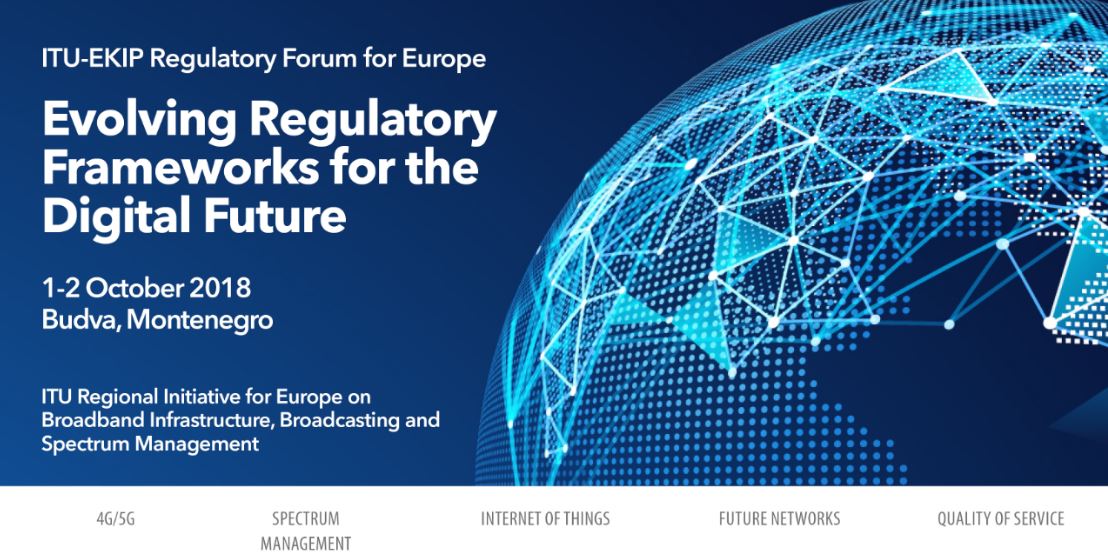 Regulatory Forum for Europe on “Evolving Regulatory Frameworks for Digital Future” was held from 1 to 2 October 2018 in Budva, Montenegro, within the framework of the Festival of ICT Achievements – INFOFEST 2018.
Regulatory Forum for Europe on “Evolving Regulatory Frameworks for Digital Future” was held from 1 to 2 October 2018 in Budva, Montenegro, within the framework of the Festival of ICT Achievements – INFOFEST 2018.
The Conference was organized by the Telecommunication Development Bureau (BDT) of the International Telecommunication Union (ITU) and the Agency for Electronic Communications and Postal Services of Montenegro (EKIP).
This Regional Forum was held within the framework of the ITU Regional Initiative for Europe on Broadband infrastructure, broadcasting and spectrum management that aimed at facilitating the high-speed connectivity with resilient and synergistic infrastructure development, deployment and sharing, whilst ensuring a trusted and quality user experience. This event provided a unique opportunity for high-level dialogue between stakeholders on strategies and policies directed towards broadband development in the region, while discussing the challenges and opportunities offered by resilient high speed networks couple with regulatory actions that were flexible and collaborative. This event also offered an opportunity for setting up particular actions to assist countries in need on regulatory matters including transiting from IPv4 to IPV6, exchange of practices on how to tackle EMF limits for effective 5G roll outs, others.
It covered in particular the following aspects:
- Trends in ICT policy & regulation;
- Innovative policy and regulatory tools for the digital future;
- Roll-out of diverse broadband technologies across Europe in the context of creation of ubiquitous resilient high-speed broadband infrastructure;
- Emerging technologies accelerating evolution of regulatory frameworks for digital future, including 5G, Internet of Things, Artificial Intelligence;
- Regulatory challenges and opportunities, including evolving market analysis, roaming, quality of services, users rights and protection, electromagnetic field levels in context of 5G implementation;
- Fostering deployment of future networks and transition from IPv4 to IPv6 across Europe;
- New regulatory tools aiming at even more effective delivery by regulatory authorities, including spectrum monitoring, mapping of infrastructure, quality of service measurement.
Representatives of European Regulatory Agencies, Ministries, Operators of electronic communications, Academia as well as representatives and experts of international organizations and institutions in charge of the regulation and development policy of electronic communications were invited to take part in the Conference.